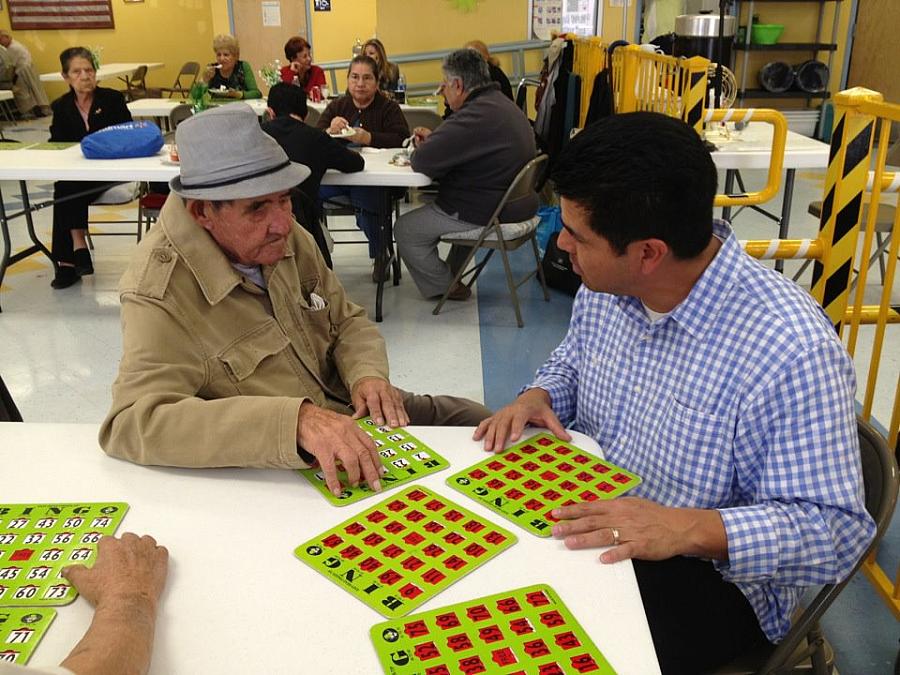As number of aging Latinos increases, so do story possibilities

When I was a reporter for Vida en el Valle, the McClatchy Company’s bilingual newspaper in California’s agricultural San Joaquín Valley, my editor often encouraged me to write about issues impacting aging Latinos. From conversations among his friends and family, he knew it was an important issue in the majority Latino region. He told me anecdotes about community members who were struggling to care for their aging parents.
When I spoke with area experts, they confirmed what my editor was hearing on the ground: Middle-aged Latinos were committed to caring for their aging parents, but were facing a lot of stress.
In Latino households, where family is a priority and multiple generations live under one roof, people were struggling financially to care for their parents, while providing for their own children. Latino families also faced unique challenges in providing care for their aging relatives: Some older Latinos lacked medical insurance, possibly due to immigration status, and some only received sporadic medical care, if they visited family in another state or traveled to Mexico for extended periods of time. Then there were the cultural quandaries: Older Latinos were not accustomed to the idea of long-term care facilities.
But that is about as far as I got on the topic. That story remained on my reporting bucket list, mainly because I could not find a compelling and newsworthy way to approach the topic.
I was reminded of this when I read a recent story about aging Latinos and poverty. Yolanda González Gómez, in an article for New America Media and the Spanish-language HuffPost Voces, described how Texas residents Manuel Cisneros, 73, and Paula Cisneros, 63, are struggling to survive. “A peaceful retirement for them just looks like a very distant dream,” she wrote. She explained that the couple is among about 50 percent of Latino seniors over age 65 living in or near poverty levels, according to the U.S. Census Bureau.
González did a great job of putting a human face on the financial challenges facing aging Latinos. But as this Associated Press article states, the number of aging Latinos and Asians is rising three times faster than that of whites, creating a need for more health and social services tailored toward these groups - and an opportunity for health journalists to tell more important stories.
I reached out to Dr. Steven Wallace, professor and chairperson at the Department of Community Health Sciences at the UCLA Fielding School of Public Health, and the associate director of the UCLA Center for Health Policy Research, to learn about some emerging issues impacting aging Latinos, and how health reporters could go after them. Below are his suggestions.
Health policies: New health policies could have a disproportional impact on older Latinos, Wallace said in an e-mail. As an example, he cited a proposal to move most Medicare and Medicaid-eligible people into managed care. The proposal, part of federal health care reform, is being implemented state by state, on a trial basis, with an eye to full, national implementation, he said. Wallace doesn’t think the plan is inherently bad, but he’s concerned that it could prove problematic for low-educated, limited English-speaking seniors in medically underserved areas, if not implemented effectively.
Family issues: Because Latino households are often multigenerational, and because of the cultural priority placed on family, older Latinos can be impacted by issues happening to close relatives. They might worry about their grandchildren’s education, their adult child’s lack of work, or the family’s loss of their home. The Latino model of caregiving - both by older Latinos for their younger families, and for disabled older adults - is also an issue worth exploring, Wallace said. “Most caregiving policy in the U.S. is not sensitive to the caregiving patterns in Latino families,” he wrote.
Immigration reform as a health issue: Older Latinos care about immigration reform, whether it’s because they lack proper documentation, or because they live in a mixed-status family, Wallace said. Without documents, people have limited access to work and public services. “The fear and anxiety in immigrant communities under the current system impacts the quality of life of older Latinos,” he wrote.

